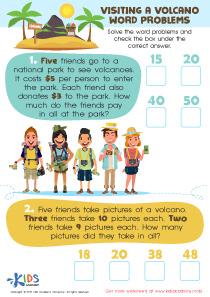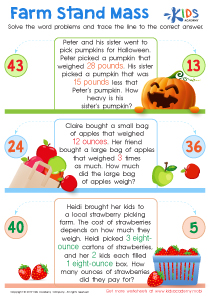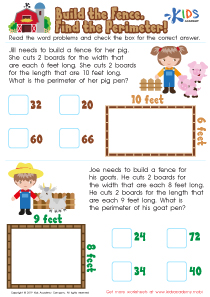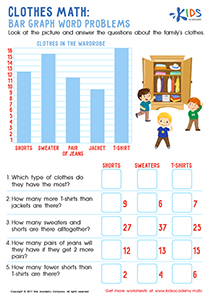Normal Addition and Subtraction Word Problems Worksheets for Ages 8-9
29 filtered results
-
From - To
Introducing our Normal Addition and Subtraction Word Problems worksheets, perfectly tailored for children aged 8-9 years. These worksheets are an excellent resource for homeschool homework sheets, providing young learners with engaging and challenging practice in fundamental math skills. Each sheet is carefully designed to reinforce addition and subtraction through real-world scenarios, helping children develop critical thinking and problem-solving abilities. The worksheets are user-friendly, printable, and crafted to make learning fun and effective. Ideal for supplementing homeschool curricula, these worksheets ensure a solid foundation in basic arithmetic concepts, fostering confidence and academic success in young learners.
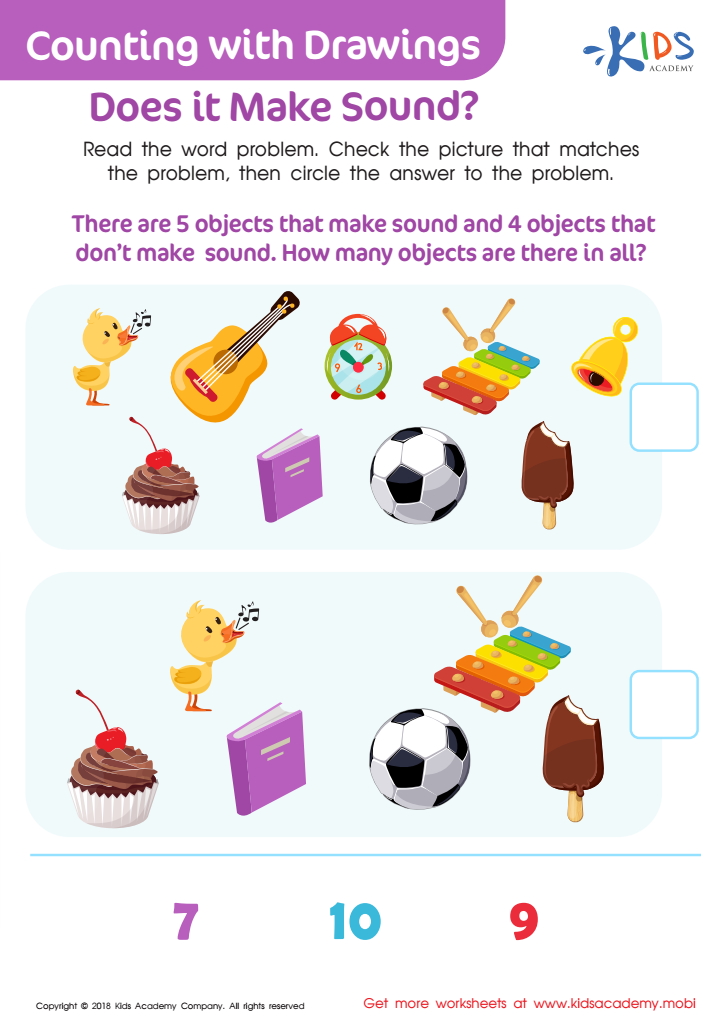

Counting With Drawings. Does It Make Sound? Worksheet


Tricky Problems Worksheet: Part 1
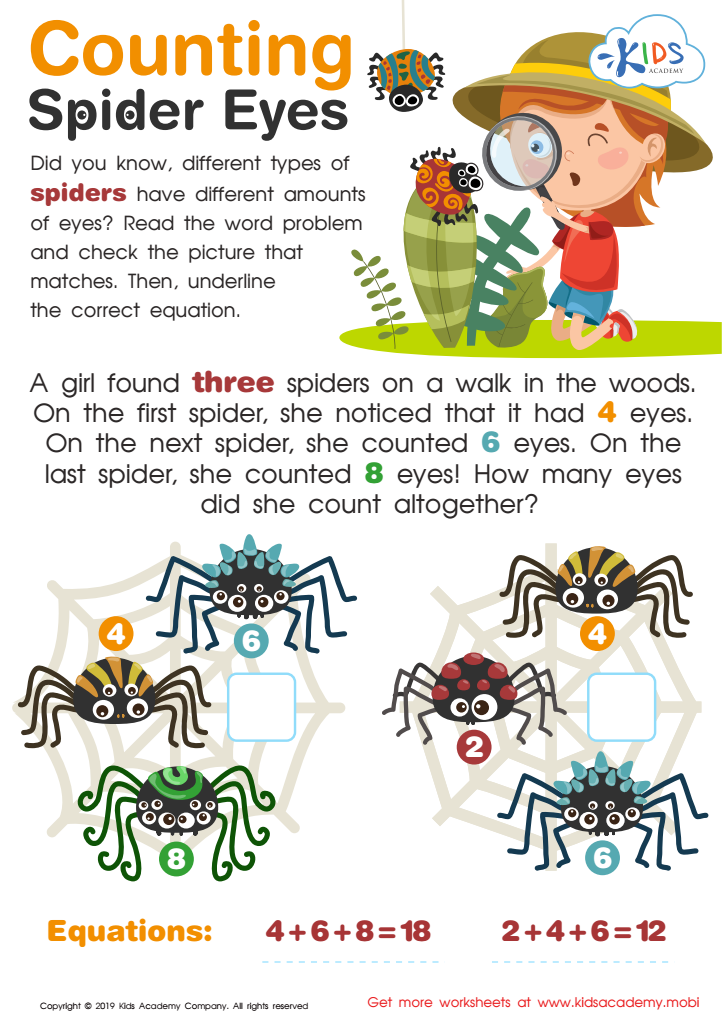

Counting Spider Eyes Worksheet


Enrichment -2 Step Word Problems Worksheet
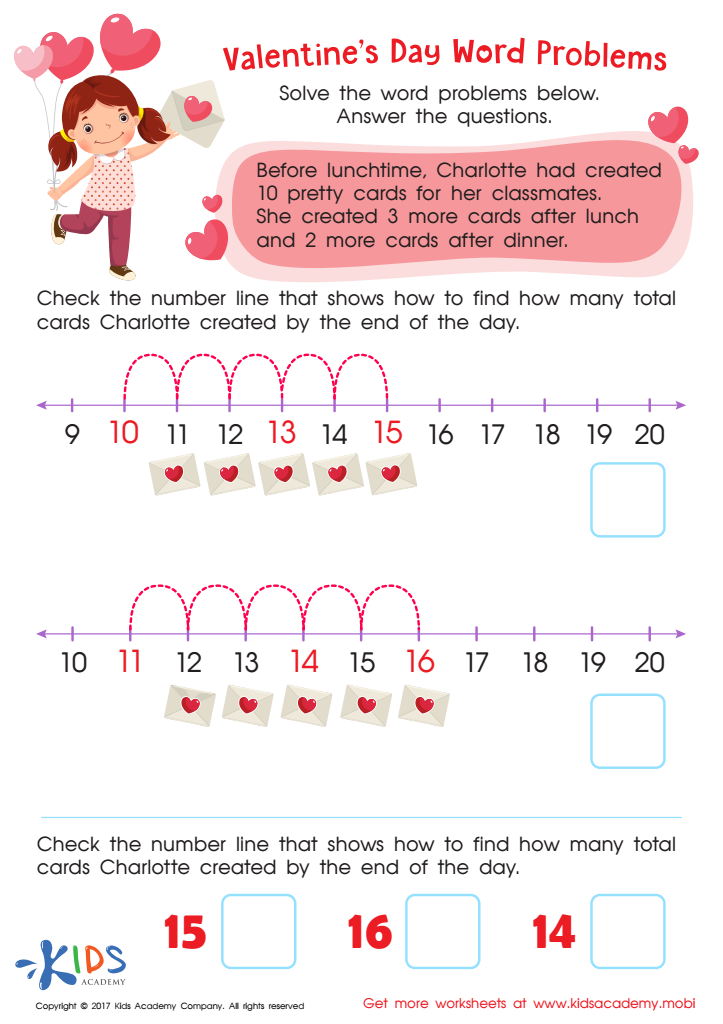

Valentines Day Word Problem Worksheet
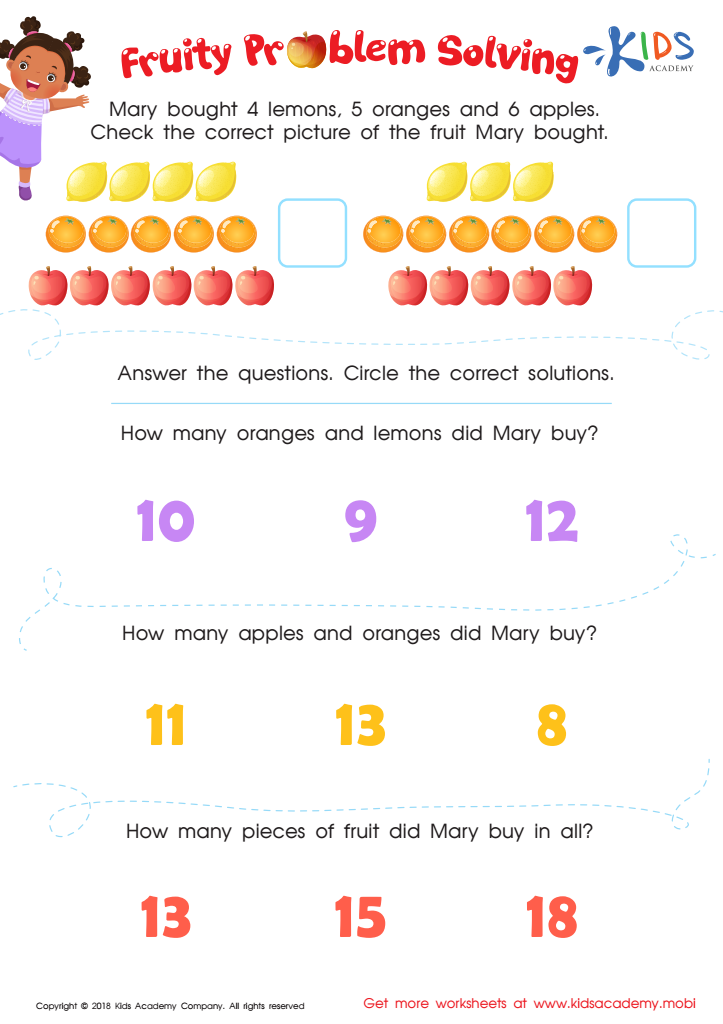

Fruity Problem Solving Worksheet


Adding Flower Petals Worksheet
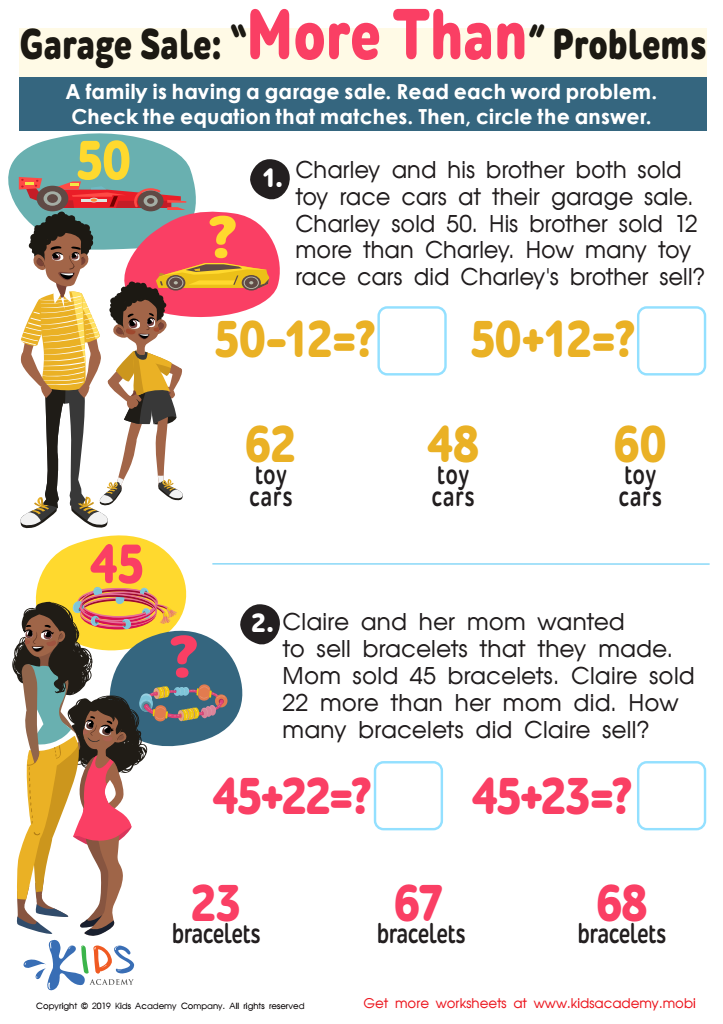

Garage Sale - More yhan Worksheet
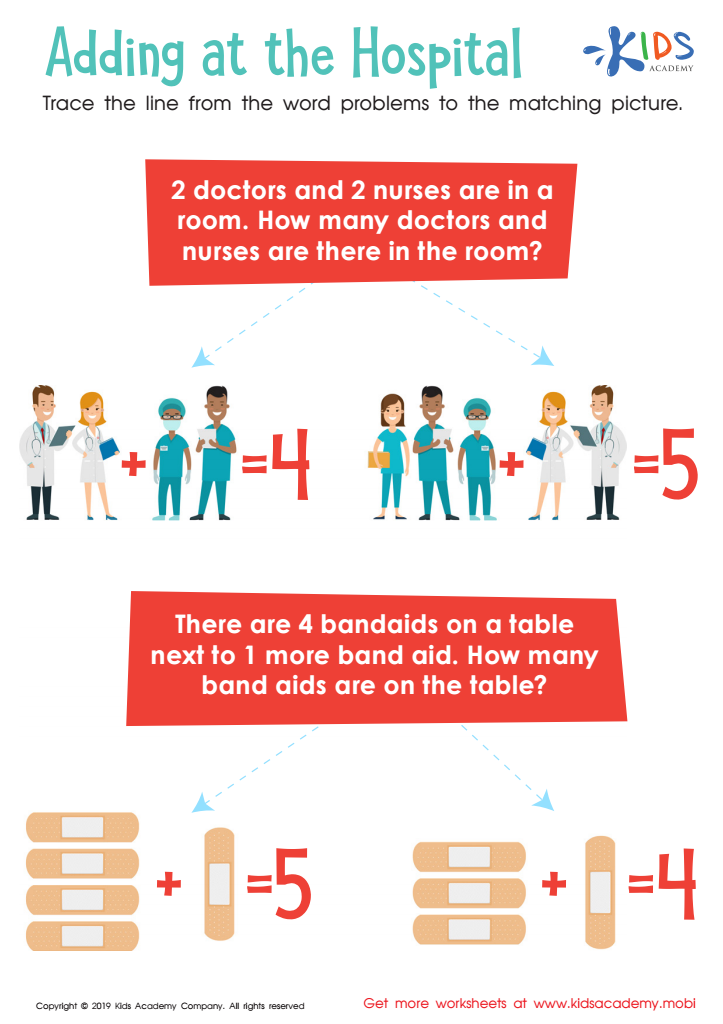

Adding at the Hospital Worksheet
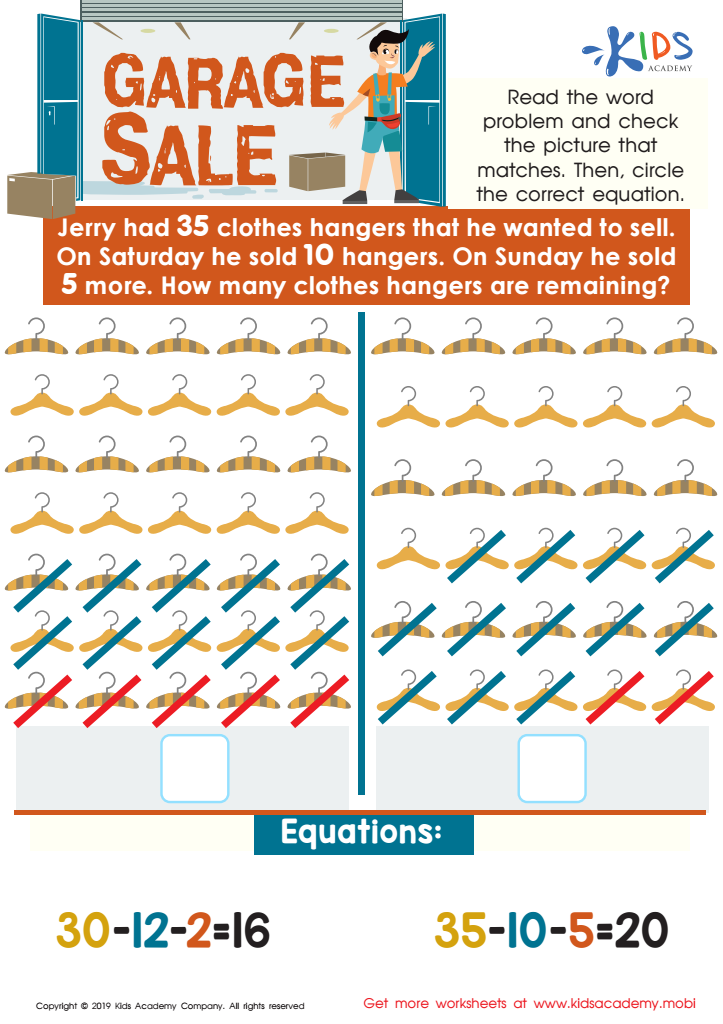

Garage Sale Worksheet
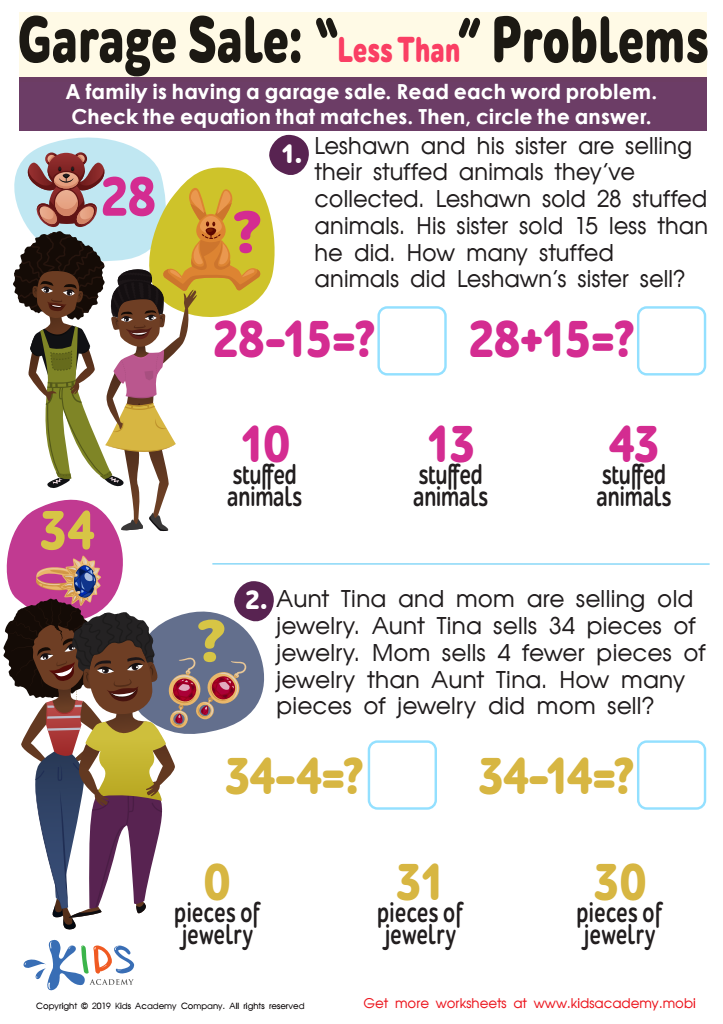

Garage Sale Less Than Worksheet
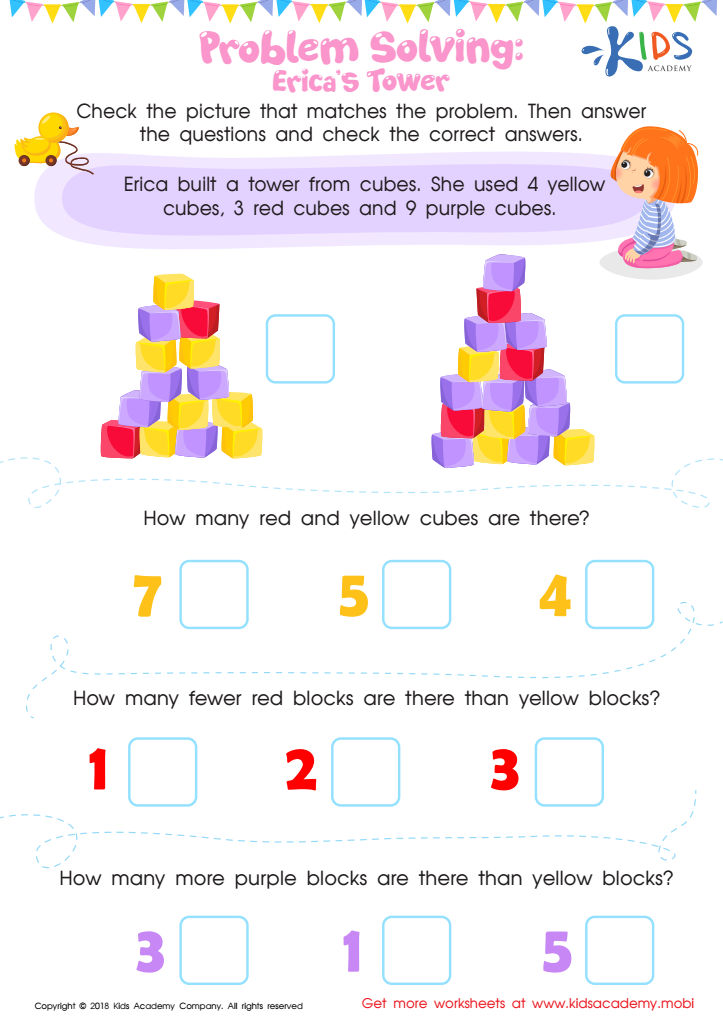

Problem Solving: Erica's Tower Worksheet


Tricky Problems Worksheet: Part 2
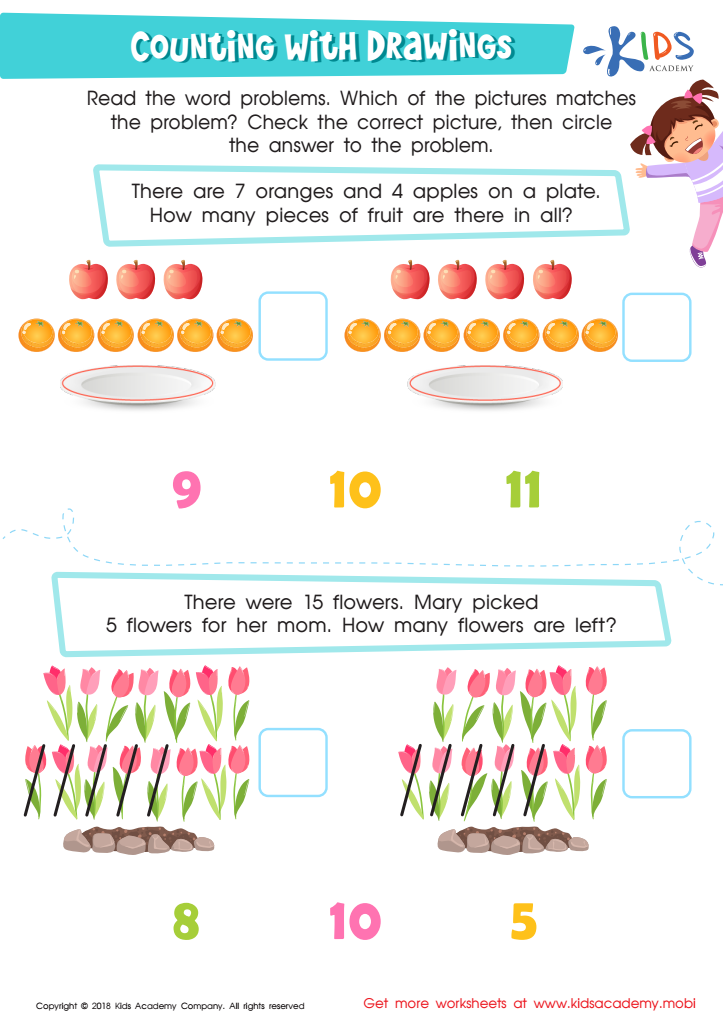

Counting with Drawings: Fruits & Chocolates Worksheet
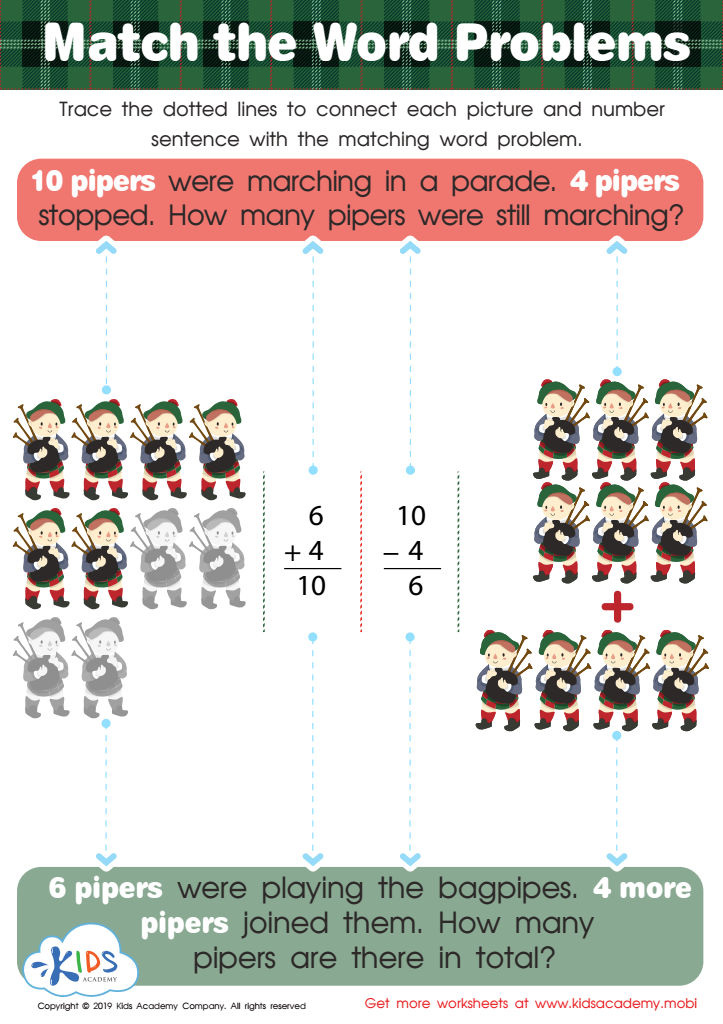

Match the Word Problems Worksheet
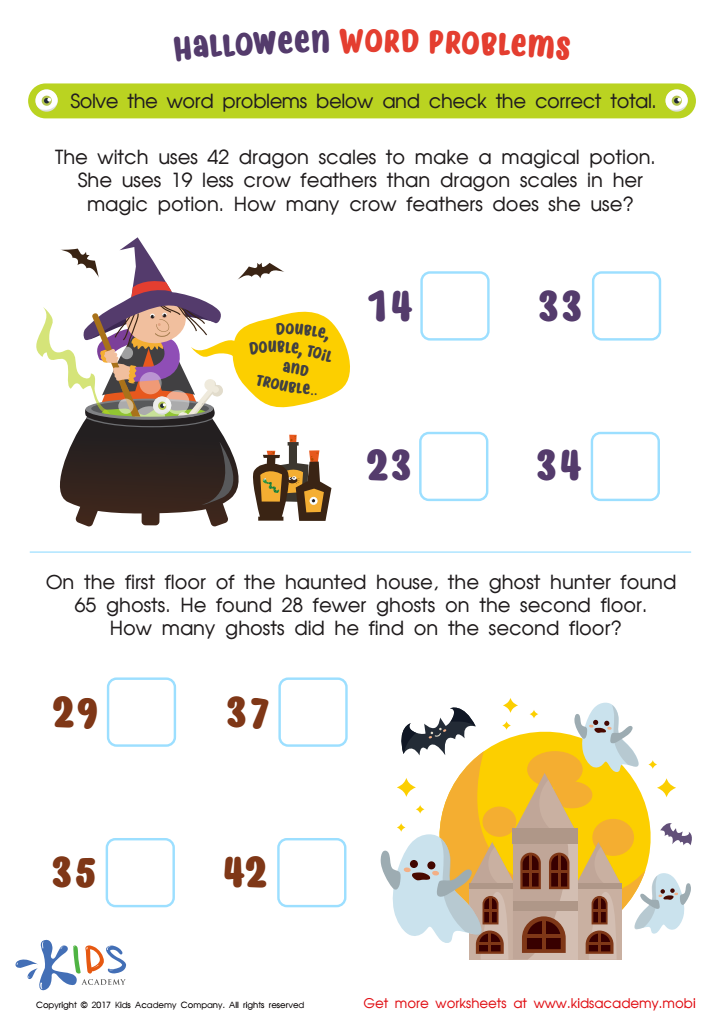

Halloween Word Problems Printable
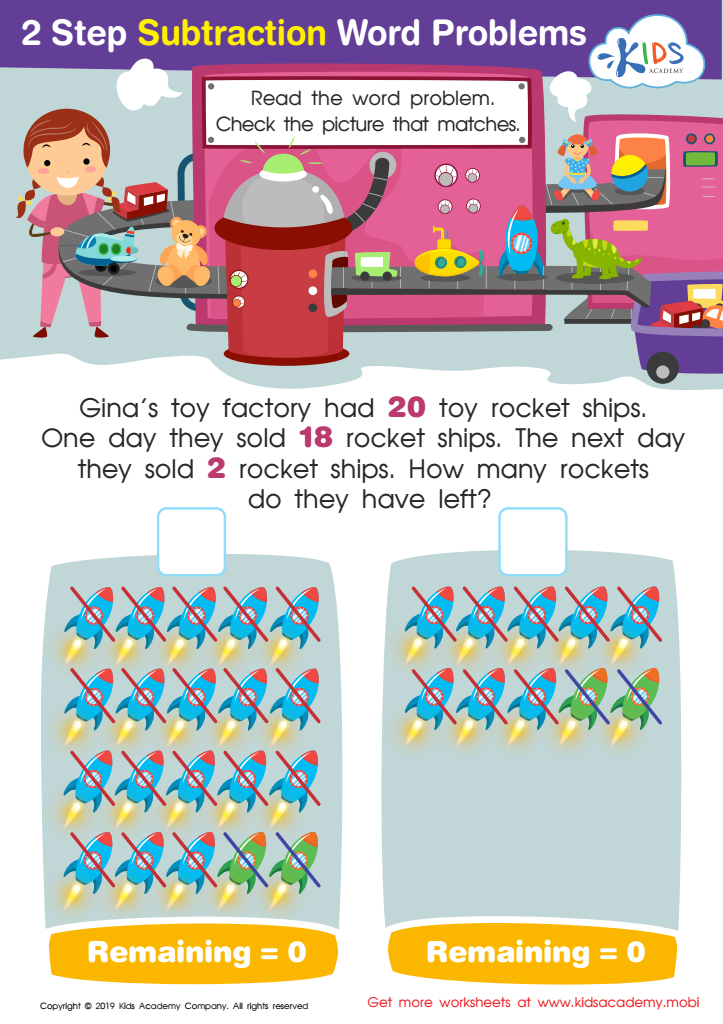

Step Subtraction Word Problems Worksheet
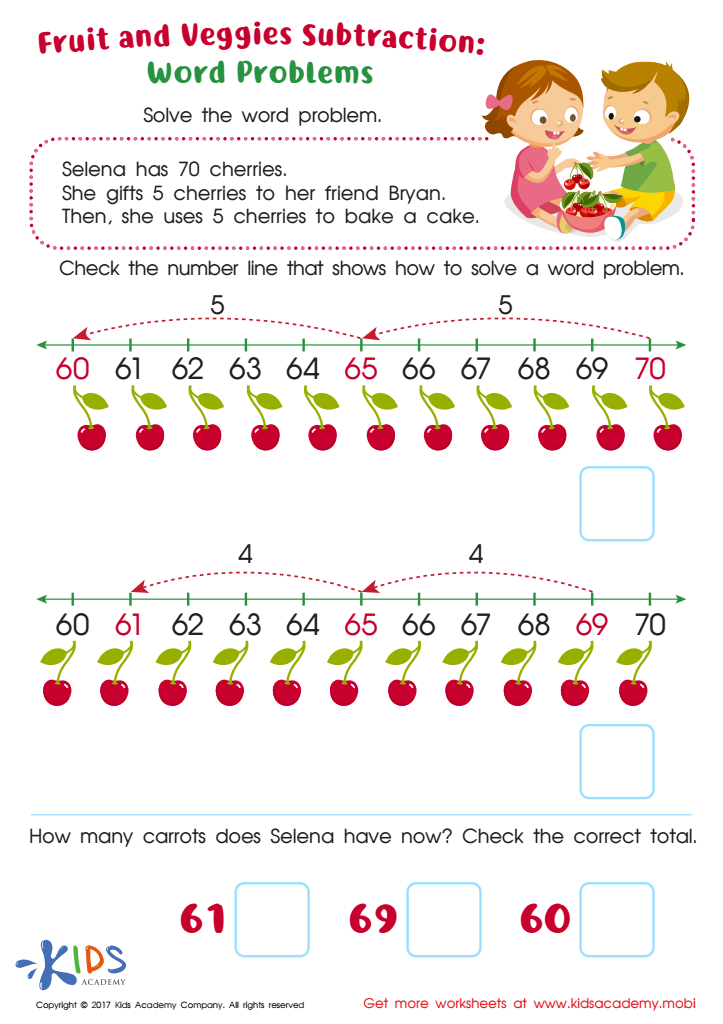

Subtraction Word Problems Free Printable
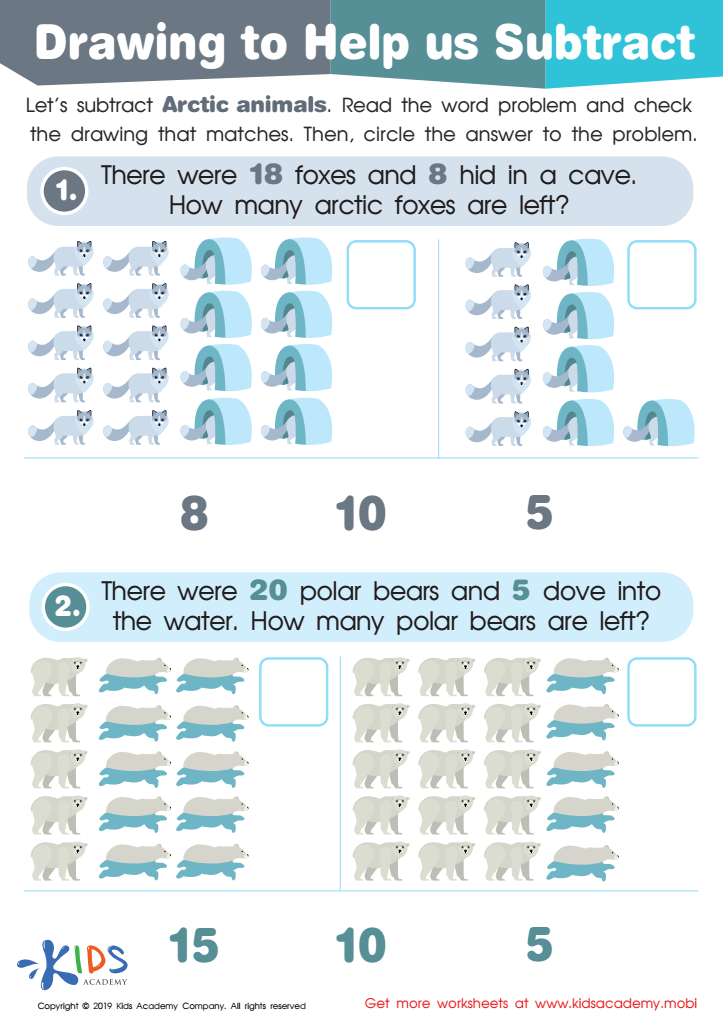

Drawing to Help Us Subtract Worksheet


Solve the Problem: Trick–or–treating Worksheet
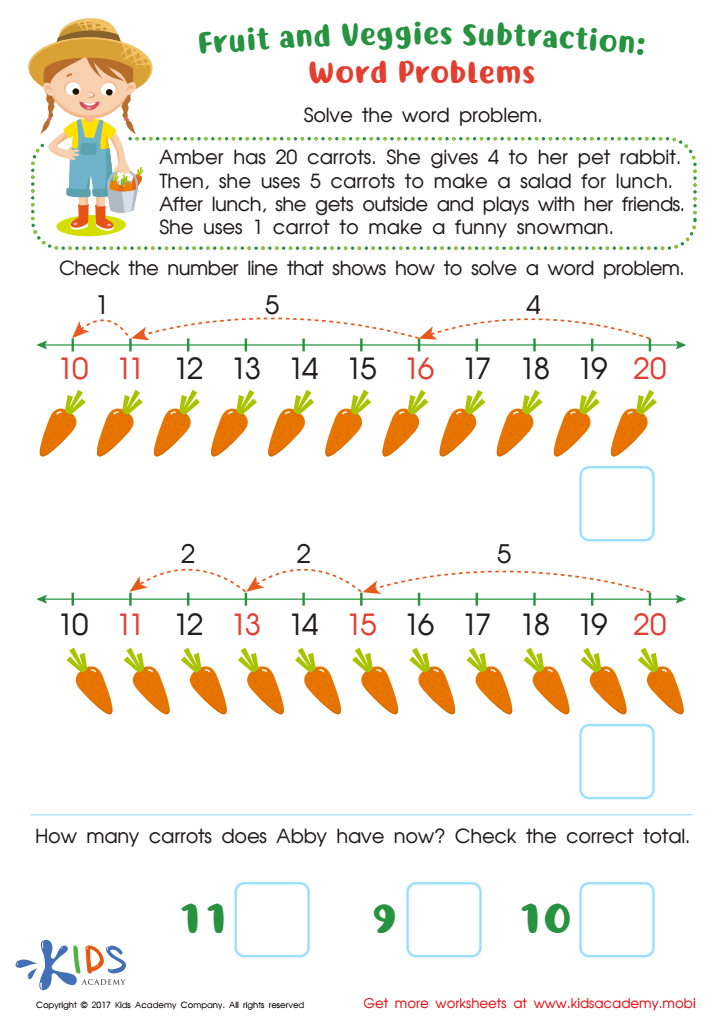

Subtraction Word Problems Printable


Word Problems: Assessment 2 Worksheet


Addition and Subtraction: Word Problems Worksheet
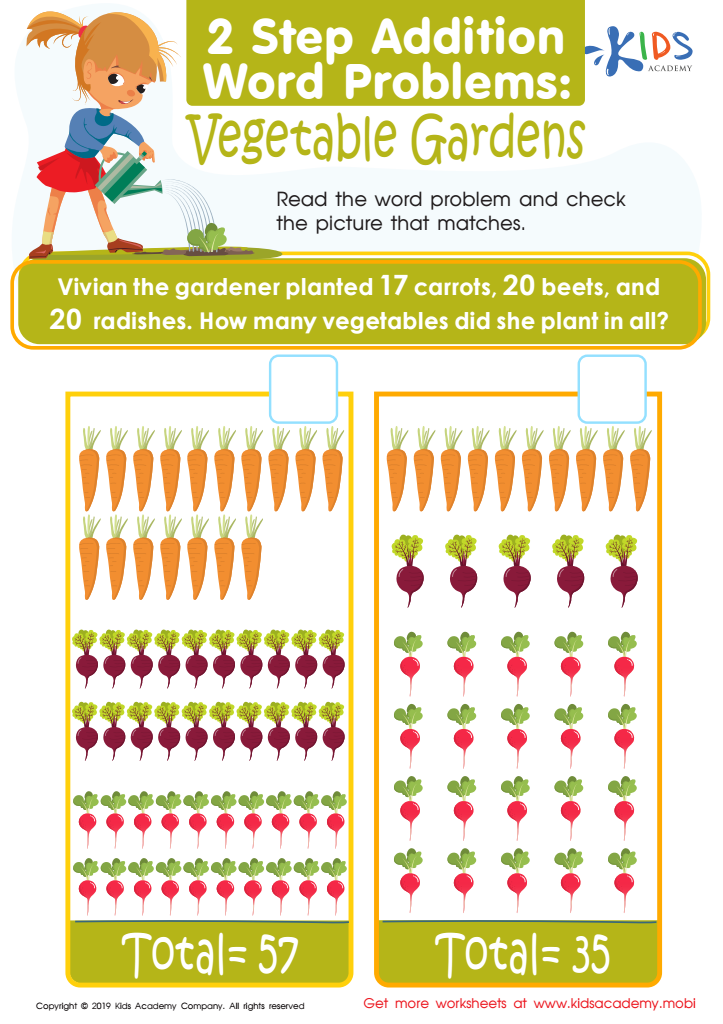

Vegetable Gardens Worksheet
Normal worksheets on Addition and Subtraction Word Problems are incredibly beneficial educational tools for children aged 8 to 9 years. These learning worksheets are meticulously designed to help children grasp fundamental mathematical concepts through real-world applications, ensuring a solid foundation in numeracy that is crucial during these formative learning years.
Firstly, these worksheets serve as an engaging way to introduce young learners to complex mathematical ideas. By framing addition and subtraction in the context of everyday situations, children are able to see the relevance of math in their daily lives. This not only enhances their interest but also helps in retaining and applying the knowledge learned. Whether it's figuring out the total number of apples in two baskets or calculating how many candies are left after some are given away, word problems make math tangible and relatable.
Moreover, addition and subtraction word problems encourage critical thinking and problem-solving skills. Unlike straightforward arithmetic problems, word problems require more than just computation; they demand that children read carefully, understand the scenario, identify the relevant information, and decide on the correct operation to use. This cultivates essential skills such as analytical thinking and attention to detail, which are invaluable across all areas of study and daily activities.
Learning worksheets specifically tailored for word problems also promote the development of reading and comprehension skills. As children parse the text to extract mathematical clues, they inadvertently practice and improve their reading ability. Understanding the problem's context becomes just as important as solving it, thus fostering a dual skill set where math and literacy progress hand in hand.
Additionally, these worksheets are structured to provide a gradual increase in difficulty, which is vital for building confidence in young learners. Starting with simpler problems, children can build a comfortable pace of learning without feeling overwhelmed. This progressive challenge keeps them engaged and motivated to tackle more complex problems as they develop their skills and gain confidence in their abilities.
The design of learning worksheets often includes helpful hints or strategies, which guide children through the problem-solving process. This scaffolded support ensures that all learners, regardless of their initial skill level, can achieve success and feel empowered in their mathematical journey. Furthermore, these worksheets often include visual aids such as pictures or diagrams, which help visual learners to better understand and solve the problems presented.
These learning worksheets also provide an excellent resource for both teachers and parents. They are easy to integrate into classroom lessons or home study routines and offer a straightforward way to track and assess a child’s progress in mathematics. For teachers, they are a great tool for identifying areas where a student may need additional support or reinforcement. For parents, these worksheets offer a hands-on way to engage with their child's education, providing opportunities to explore math together and discuss problem-solving strategies, which enhances the learning experience.
Moreover, the interactive nature of word problems in learning worksheets lends itself to collaborative learning environments. Children can work in pairs or small groups to solve problems, promoting discussion and the exchange of ideas. This peer interaction is crucial as it allows children to express their thinking process, learn from each other, and develop social skills such as cooperation and communication. By discussing various approaches to the same problem, children can discover multiple methods to arrive at a solution, broadening their mathematical understanding and flexibility in thinking.
The flexibility of learning worksheets also means they can be used in various settings – be it in classrooms, homeschooling, or supplementary learning contexts. They are a versatile resource that can be adapted to meet the individual learning styles and paces of different children, making them an inclusive educational tool.
Furthermore, the repetitive nature of these worksheets helps in reinforcing mathematical concepts. Through consistent practice, children become more adept at quickly recognizing the type of calculation required by each problem. Repetition ensures that skills once learned are not easily forgotten, establishing a strong and lasting understanding of core mathematical operations.
Lastly, the satisfaction and confidence that children gain from solving complex word problems cannot be understated. Each worksheet completed represents a series of challenges overcome, which builds a child’s confidence in using math, an essential life skill. This boost in self-esteem contributes significantly to their overall academic performance and attitude towards learning new concepts.
In conclusion, Normal worksheets on Addition and Subtraction Word Problems are an invaluable resource for children aged 8-9 years. By blending math practice with critical thinking, reading comprehension, and practical application, these learning worksheets equip children with the skills necessary to navigate both their academic and everyday lives effectively. As they transition from learning to apply basic arithmetic to embracing more complex mathematical challenges, these worksheets ensure that children are well-prepared, confident, and competent.
 Assign to My Students
Assign to My Students












